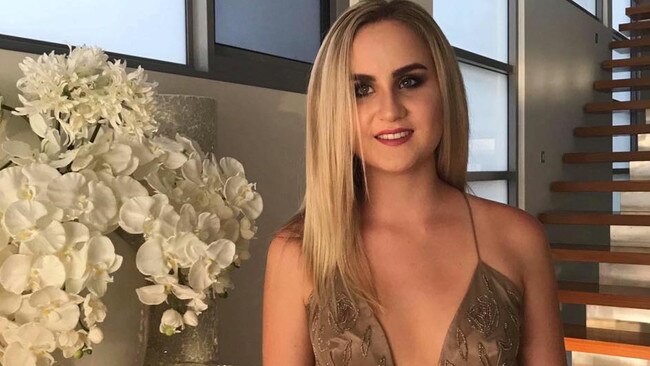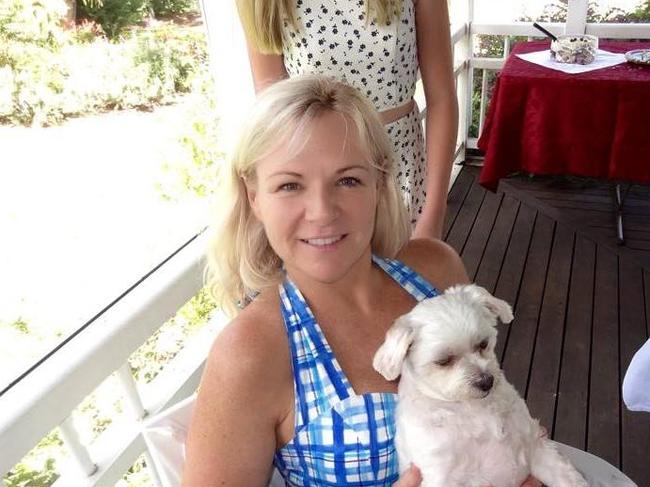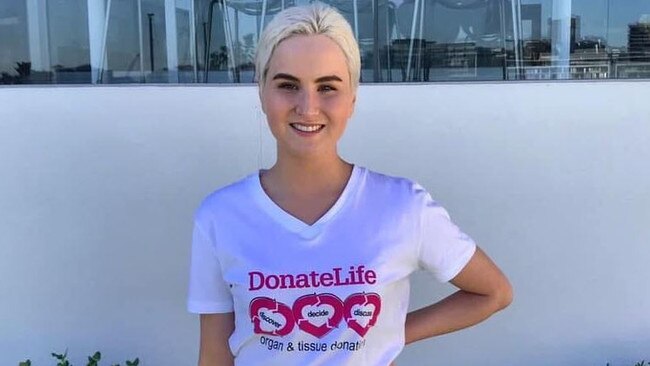Katy O’Connell donates kidney to daughter after meningococcal disease
When Brisbane student Phoebe O’Connell was struck down with meningococcal disease last year, her family feared the worst. But it was a selfless gift from her mum that has given her the best chance of leading a normal life.
QLD News
Don't miss out on the headlines from QLD News. Followed categories will be added to My News.
A DEVOTED Brisbane mother has given her daughter a most precious gift — her kidney.
When 18-year-old Phoebe O’Connell was struck down with potentially fatal meningococcal disease in December last year, her family feared the worst.
Meningococcal, which occurs when bacteria invades the body after transferral through kissing, coughing or sneezing, kills 10 per cent of victims and maims a further 30 per cent.
For the past seven months, Phoebe has fought bitterly hard to recover, but it was the selfless organ donation by her mother Katy that has given her the best chance of leading a relatively normal life.
“I didn’t expect her to do that for me,” Phoebe told Network 10’s Sunday Project.
“Mum is my rock, giving up her kidney was that one extra thing she had to do for me and I’m so grateful.”

Mrs O’Connell is a nurse and CEO of Link PRC, which runs courses on in cardiopulmonary resuscitation and first aid. Phoebe’s father Brian is a specialist anaesthetist who works in private and public practice.
“I’m just relieved when I see Phoebe coming back,” said Mrs O’Connell, who recently turned 50 and said her milestone birthday gift was to help her eldest daughter.
Phoebe’s battle with meningococcal came as a brutal shock.
The University of Queensland student and graduate of All Hallows’ School had complained of feeling unwell, with a fever, intense shivering and terrible neck pain.
She was rushed to the Mater Hospital, where she was allegedly told there were no available beds and that she should return home.
The next morning, she was back in hospital after contracting Y, one of five strains of the disease.
A relative told The Courier-Mail at the time that Phoebe was in a “really bad way”, her extremities were a purplish black (a sign of advanced stages of the disease) and she was being artificially ventilated.

Phoebe’s family was told she would lose the tip of her nose, six fingers and six toes. Miraculously, this did not happen.
In February this year, three months into her recovery, Phoebe posted on social media: “I know meningococcal has been within (sic) the media lately and there’s a good reason for it. I was unaware that I was not vaccinated against the disease and I also didn’t know how deadly it really was until I witnessed it first-hand. I wouldn’t want anyone to experience any of the terror that is meningococcal and I am so sorry to the families that have lost loved ones because of it. Despite losing my spleen and kidneys, I’m so lucky to be here.”

Following extensive Courier-Mail coverage on the disease and an ongoing pro-vaccination campaign by Kirsten McGinty, whose 20-year-old daughter Zoe died of the W strain, the Federal Government now provides free ACWY vaccines for Year 10 students and adolescents aged 15-19 year olds who missed receiving the jab at school.
It is yet to commit to funding the B vaccine until it receives the necessary stamp of approval from the Pharmaceutical Benefits Advisory Committee.
State Governments, however, have the power to act independently. South Australia has committed to funding B but the Queensland Government has refused to pay for the two-jab procedure, which costs upwards of $250.
People must be vaccinated against all five strains of the disease — A, C, W, Y and B — to be completely protected.
In Queensland since 2014, there have been 260 recorded cases.
Symptoms include fever, vomiting, diarrhoea, drowsiness, muscle pain, neck stiffness and a rash which may start as a spot or blister and develop into purple bruising.


